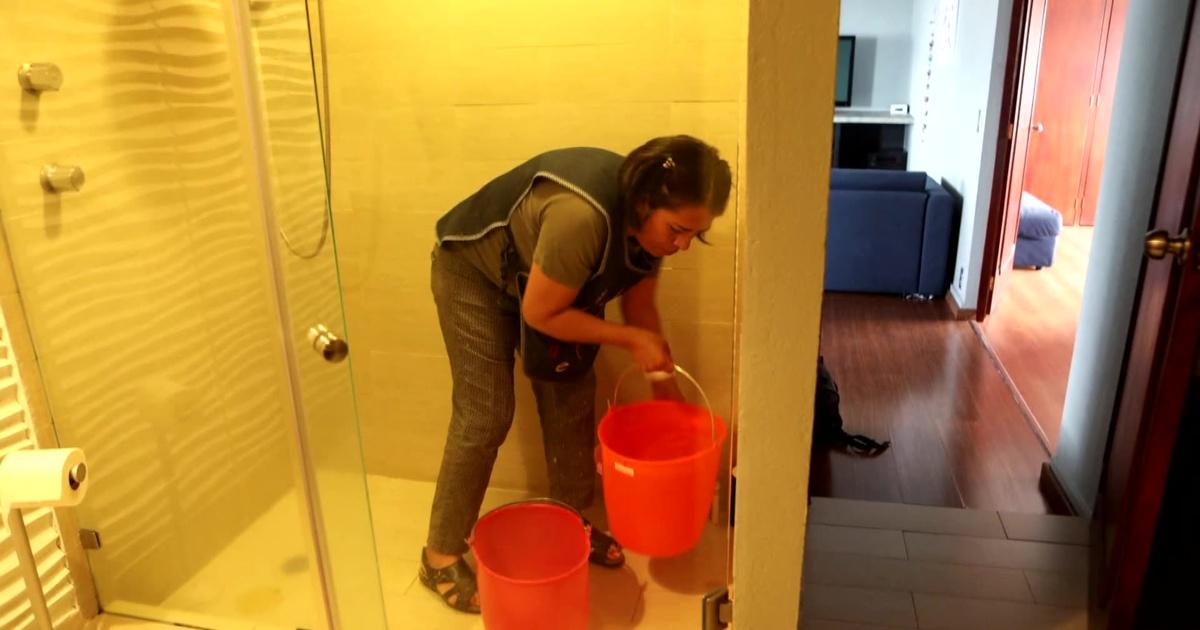




The UK's home care sector is facing a shortage of workers as the Home Office tightens regulations on immigration permits for migrant workers [a25ae605]. One of the country's largest home care providers, Grosvenor Healthcare, has revealed that it is paying migrant workers to stay at home because their permits have not been renewed [a25ae605]. The government's stricter approach comes after scammers abused the system, prompting a crackdown on the issuance of care worker visas [a25ae605]. As part of the crackdown, the government announced in December that care workers would no longer be able to bring their dependent partners and children to the UK [a25ae605]. The Homecare Association has raised concerns about the issue with the care minister, Helen Whately [a25ae605]. The visa problems are already causing significant disruptions, with Grosvenor Healthcare unable to make around 3,000 care visits per week [a25ae605]. Another care provider, 1st Homecare, has also faced challenges in recruiting foreign workers due to excessive documentation requirements from the Home Office [a25ae605]. The Association of Directors of Adult Social Services emphasizes that international recruitment is not a long-term solution to the social care recruitment crisis and calls on the government to provide adequate funding to attract more UK-based workers to the sector [a25ae605].
In addition to the visa challenges faced by home care workers in the UK, UN experts have expressed concern about the exploitation of migrant workers in the country [647f0392]. The experts highlighted the systemic exposure of migrant workers to risks such as deception, exorbitant recruitment fees, debt bondage, undignified living conditions, and potential deportation [647f0392]. They called for urgent reform of the current system governing labor migration in the UK [647f0392].
Meanwhile, in the United States, domestic workers like nannies, housekeepers, and home health aides lack basic labor protections [f56dec9f]. They are excluded from key workplace protections such as the Fair Labor Standards Act and the Occupational Safety and Health Act [f56dec9f]. Protections also vary by state, with 11 states and the District of Columbia having passed their own domestic workers bills [f56dec9f]. Efforts to pass a federal version of the Domestic Workers Bill of Rights have been stalled [f56dec9f]. Domestic workers, who are predominantly women of color and immigrants, are vulnerable to mistreatment and discrimination [f56dec9f]. They are not included in the Civil Rights Act or the National Labor Relations Act, which establishes the right to unionize [f56dec9f]. The COVID-19 pandemic further highlighted the economic vulnerability of domestic workers [f56dec9f].
In India, domestic workers also face challenges and exploitation when seeking employment abroad [2662ca64]. Many Indian domestic workers lack legal protections and support both at home and in foreign countries [2662ca64]. The article highlights the case of the Hinduja family in Geneva, who were convicted of exploiting their domestic staff [2662ca64]. It also mentions the need for stronger bilateral agreements between India and destination countries to ensure the rights and safety of domestic workers [2662ca64]. The article emphasizes the importance of accessible reporting mechanisms for workers who don't speak the local language [2662ca64]. 'Nanny institutes' in north India cater to the demand for child and elderly care [2662ca64]. The Kerala government plans to introduce legislation to safeguard house-helps, and the external affairs ministry has proposed a draft emigration Bill [2662ca64]. The article concludes by highlighting the increased need for Indian workers to go abroad to pay off debts accrued during the pandemic [2662ca64].
In Kuwait, about 300 domestic workers with Article 20 visas have transferred to the private sector within 48 hours of implementing a decision to allow such transfers [79eb70f7]. The decision aims to address the manpower shortage in private companies by utilizing the skills of workers already in the country [79eb70f7]. The Public Authority for Manpower (PAM) has launched the national project 'Together 4' to protect the rights of expatriate workers in Kuwait [79eb70f7]. The project includes social, psychological, and legal support, as well as consultations via a hotline in six different languages [79eb70f7]. The transfer from Domestic Visa to Private Sector is now open, and the decision is aimed at reviving the private sector and providing workers for specific projects [79eb70f7]. The 'Together 4' project is part of the Authority's efforts to strengthen cooperation with civil society institutions and public benefit associations, guarantee the rights of all expatriate workers in Kuwait, and evaluate all aspects of employment measures [79eb70f7].
It is clear that the UK, US, India, and Kuwait need to address the exploitation and lack of labor protections for domestic and migrant workers. In the UK, the government should provide adequate funding to attract more UK-based workers to the home care sector and reform the current system governing labor migration [a25ae605] [647f0392]. In the US, efforts should be made to pass a federal version of the Domestic Workers Bill of Rights to ensure basic labor protections for domestic workers [f56dec9f]. In India, stronger bilateral agreements and accessible reporting mechanisms are needed to protect the rights and safety of domestic workers [2662ca64]. In Kuwait, the implementation of the decision to allow domestic workers to transfer to the private sector is a step towards addressing the manpower shortage and utilizing the skills of workers already in the country [79eb70f7]. The 'Together 4' project in Kuwait aims to protect the rights of expatriate workers and evaluate employment measures [79eb70f7]. The COVID-19 pandemic has underscored the importance of care work and the need to recognize its value in the economy [f56dec9f].